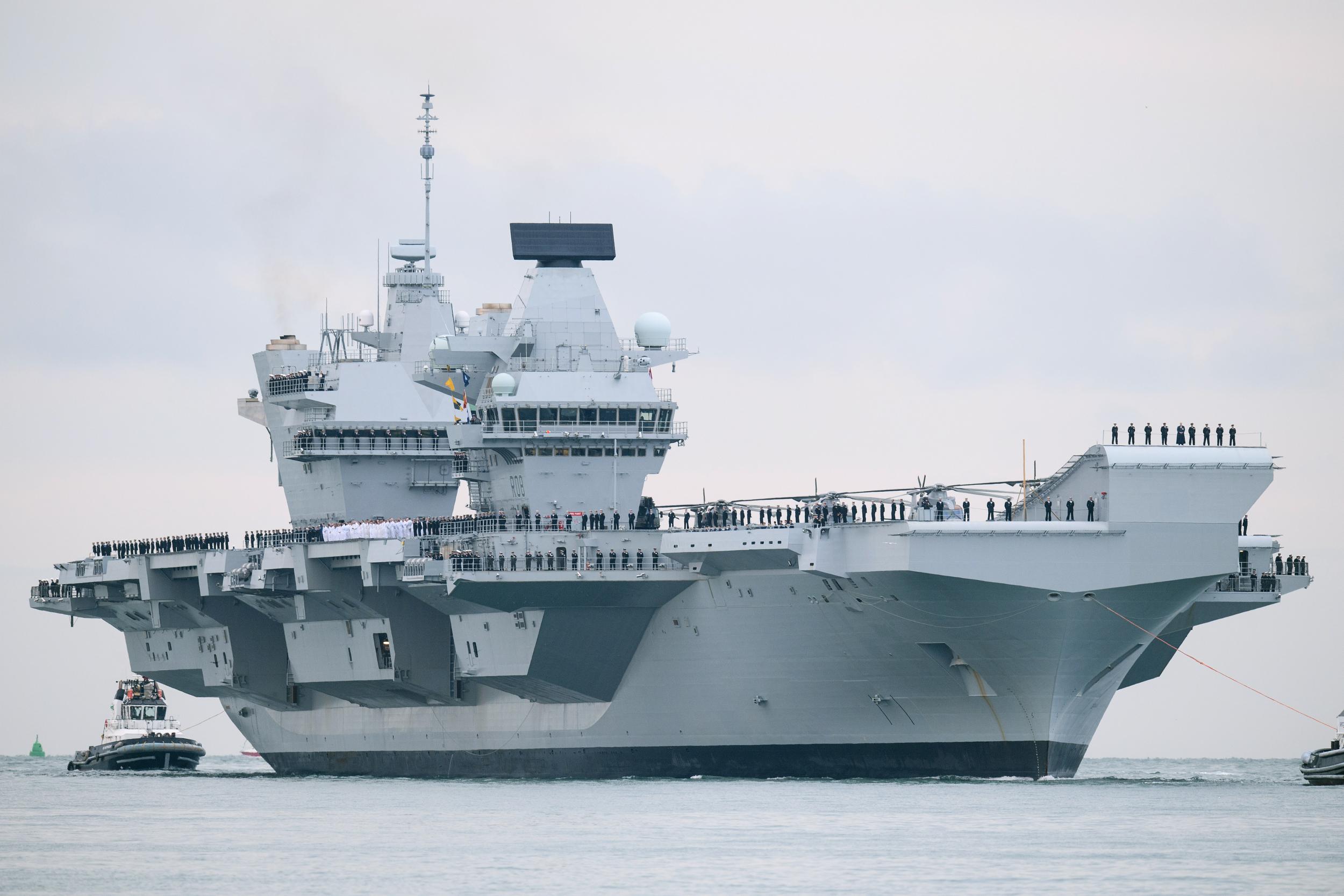Labour and GMB create headache for Government with demand that £1bn defence order stays at home
Government policy is for warships to be built in Britain, but that doesn't apply to auxilliary vessels

Jeremy Corbyn has done what opposition leaders are supposed to do with his backing for the GMB union’s call to keep a £1bn Royal Navy support ship order in the UK: He’s created a big problem for the Government.
Its current policy is for all new warships to be built in the UK. But these are not warships. They are auxiliary vessels required to service warships, specifically the UK’s £6.3bn Queen Elizabeth-class aircraft carriers and their strikeforce of new F-35 fighter planes.
The work to build this type of craft can go overseas, as it did with a £450m deal to build four tankers to fuel navy ships, which was awarded to South Korean firm Daewoo back in 2012.
Mr Corbyn argues that should no longer be the case. Ditto Scotland’s First Minister Nichola Sturgeon, who wants the work done in her country.
With no EU rules to worry about and blame (this being a defence order) it leaves ministers with a headache.
Currently the plan is for it to go out to international tender.
Conventional wisdom says that’s what you do if you’re looking for the best deal for the taxpayer, with the work going to the most competitive bidder, assuming they have the expertise and track record to do the job to the required standard.
But when assessing the cheapest bid, do you look at the bare numbers, or do you also take into consideration the economic bonus from keeping the work at home.
The union points to the benefits from doing that. You keep workers in jobs and paying taxes to the state rather than having them out of a job and claiming benefits from it.
A lot of taxpayers might also argue that it’s worth paying a premium to keep the work here because they'd rather see their money spent on keeping workers in jobs and paying taxes etc
But what if the shipyards on the Clyde are at capacity and don’t bid for the work (apparently domestic yards have been strongly encouraged to do so)? What if other yards don't come in, or aren't capable?
Does it even matter? Focusing on this issue is a smart way to attack one of the glaring contradictions at the current government's heart. Can you really be a tub thumping take back control nationalist who kisses the union flag at every opportunity while nonetheless professing to worship at the altar of the unfettered free market as many Tory right wingers do?
Which is more important? Believing in Britain or the wonders of free market capitalism and the supposed best and most practicable deal for the taxpayer?
You can’t have it both ways, although it probably won’t stop certain ministers from trying.
Join our commenting forum
Join thought-provoking conversations, follow other Independent readers and see their replies
Comments
Bookmark popover
Removed from bookmarks